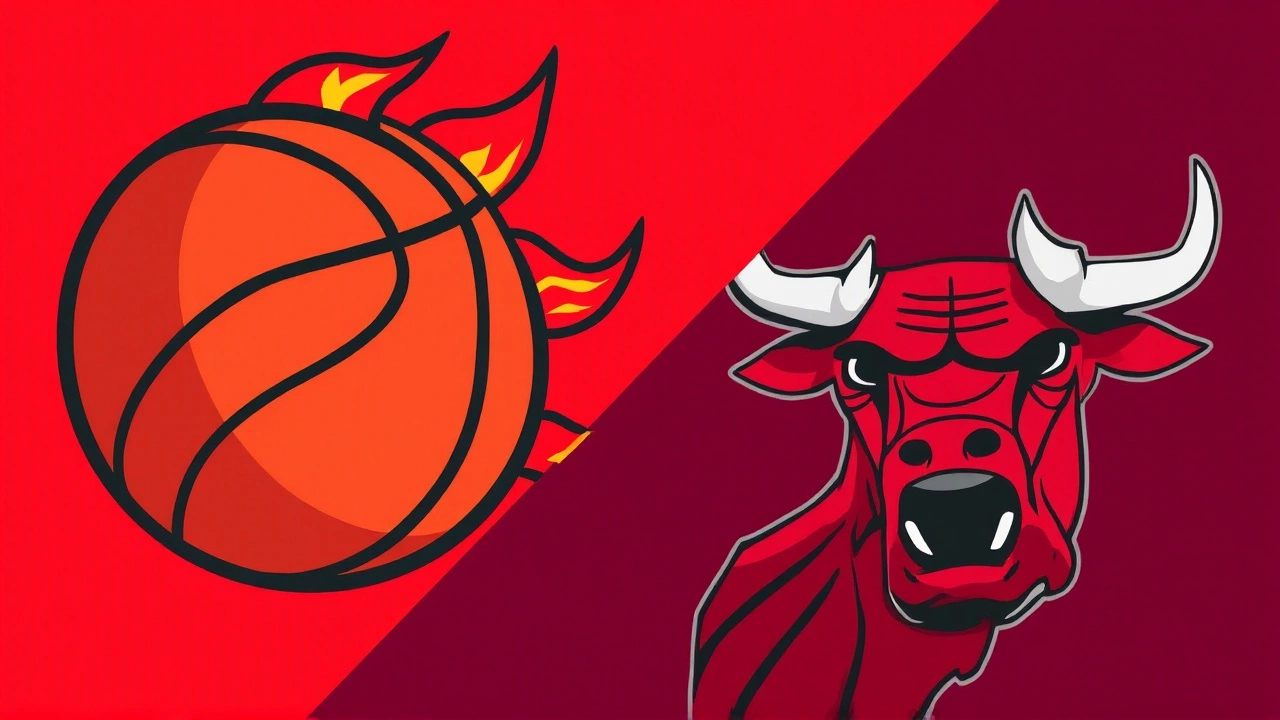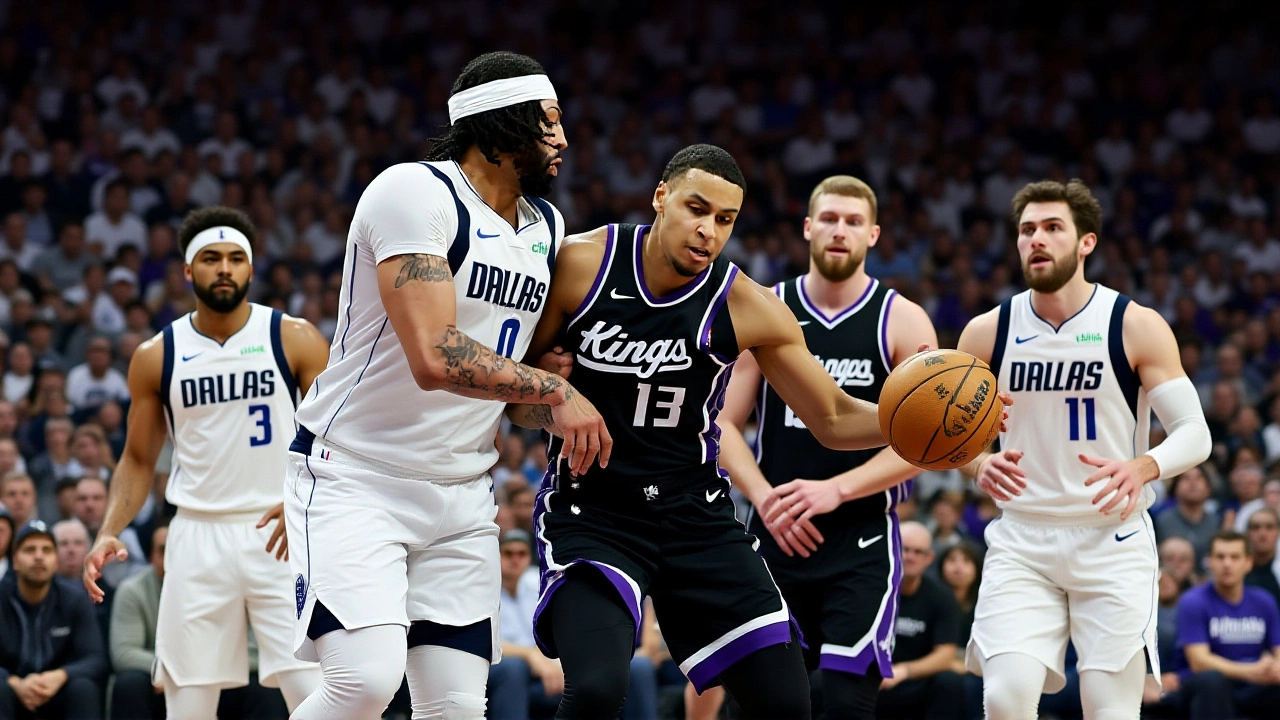The Miami Heat didn’t just beat the Chicago Bulls on Friday night — they dismantled them. In a stunning 143-107 rout at the United Center in Chicago, Illinois, on , the Heat turned a shaky start into a historic offensive explosion, leaving the Bulls shell-shocked and exhausted. At the heart of it all? Kel'el Ware, the 21-year-old center whose 20 points and 14 rebounds were a masterclass in physicality and timing. Add in 19 from Norman Powell, 18 from Bam Adebayo, and 16 each from Pelle Larsson and Davion Mitchell, and you’ve got a team that didn’t just score — they overwhelmed.
A Night That Broke the Bulls’ Spirit
The Bulls came out firing. For the first five and a half minutes, they looked like the better team — hitting jumpers, moving the ball, and building an 18-11 lead. But then, everything changed. The Heat unleashed a 53-21 scoring run that lasted nearly 12 minutes, turning a deficit into a 25-point cushion by halftime. By the end of the third quarter, the lead was 29. By the final buzzer, it was 36. That 41-point margin? The second-largest of the season for Miami and the worst deficit Chicago had faced all year — surpassing their previous low of 25 points against the Knicks on November 2.
It wasn’t just the score. It was the rhythm. Miami’s offense flowed like a river — no stagnation, no forced shots. They moved the ball with purpose, found open shooters, and attacked the rim with relentless energy. The Bulls, meanwhile, looked drained. They had played six games in eight days, flying from LA to Boston to Chicago, all while adjusting to three different time zones. You could see it in their legs. In their eyes. In the way they let a simple pass go unguarded.
Kevin Huerter’s Ejection: A Symbol of Frustration
The turning point wasn’t just statistical — it was emotional. Late in the third quarter, Kevin Huerter, Chicago’s shooting guard, threw his hands up after a foul call he felt was wrong. The ball, still in play, bounced off his outstretched fingers — and right into the back of referee Che Flores’s leg. The officials reviewed it. The crowd gasped. And then, the worst possible outcome: Huerter was ejected for unsportsmanlike conduct. He didn’t say a word as he walked off, head down, jersey already half-unzipped. The Bulls lost their most consistent perimeter shooter at the worst possible time. They were down 27. They never recovered.
Heat’s Offensive Machine: A Record-Breaking Season
Miami’s 143 points weren’t just a win — they were a statement. This was the fourth time this season the Heat have cracked 140 points. Four. In a single season. That matches their total from the previous seven seasons combined (2018-19 through 2024-25). Their average of 124.8 points per game leads the NBA. They’re not just scoring — they’re redefining what an NBA offense can look like. Coach Erik Spoelstra has turned this team into a symphony of spacing, pace, and unselfishness. And Ware? He’s become the perfect enforcer in the paint — a 7-footer who runs the floor like a guard and finishes like a veteran.
The Heat’s record now stands at 10-6 (.625), extending their winning streak to three games. In the NBA Cup group stage, they’re 2-1 — just half a game behind the Milwaukee Bucks for top spot in East Group C. Meanwhile, Chicago falls to 8-7 (.533) and 1-2 in the Cup, sliding to fourth place in their group, behind the Knicks and ahead of the Hornets by the slimmest of margins.

What This Means for Both Teams
For Miami, this isn’t just about the Cup. It’s about momentum. With the All-Star break looming, they’re playing with confidence, depth, and cohesion few teams can match. Ware, a second-year player, is emerging as a potential All-Star candidate. Powell is playing like a man who knows he’s on a contract year. And Adebayo? He’s still the engine — but now he’s got help that doesn’t just fill space — it creates chaos.
For Chicago, this loss cuts deeper than the scoreboard. Coach Billy Donovan has a roster full of young talent — Ayo Dosunmu (23 points), Josh Giddey (19 points, 11 rebounds, 9 assists), Jalen Smith (14) — but they’re being asked to do too much, too often. The schedule has been brutal. The defense has been porous. And now, they’ve lost their composure. With the NBA trade deadline approaching, questions are already swirling: Is this team built to compete? Or are they just waiting for a rebuild?
What’s Next?
The Heat host the Orlando Magic on Sunday, then travel to Atlanta next week. Their next Cup game is against the Brooklyn Nets — a must-win if they want to secure home-court advantage in the knockout round. For the Bulls, they’re back home on Monday against the Detroit Pistons, but the real challenge is mental. Can they reset after this? Or will the fatigue and frustration snowball?
One thing’s clear: the NBA Cup isn’t just a tournament. It’s a stress test. And on Friday night, the Heat passed with flying colors. The Bulls? They’re still trying to find their footing.
Frequently Asked Questions
How did Kel'el Ware’s performance compare to his previous games?
Ware’s 20 points and 14 rebounds were his best outing of the season, surpassing his previous high of 17 points and 11 rebounds set in October. He’s now averaging 14.3 points and 9.8 rebounds per game — a massive leap from his rookie season. His efficiency (10-of-14 shooting) also marks a new career high, showing he’s becoming a reliable interior force.
Why is Miami scoring so many points this season?
Miami’s offense is built on pace, spacing, and ball movement. They lead the league in assists per game (29.7) and three-point attempts (41.2 per game). Coach Spoelstra has embraced a small-ball system where Ware, Adebayo, and even guards like Larsson can handle and shoot. This flexibility creates mismatches, and opponents can’t guard all five at once.
What impact did the Bulls’ schedule have on their performance?
Chicago played six games in eight days, including trips to Los Angeles, Boston, and now Chicago — spanning three time zones. The team averaged just 3.1 hours of rest between games. Fatigue showed in slow rotations, missed assignments, and poor shot selection. This wasn’t a lack of effort — it was physical collapse.
How does the NBA Cup affect playoff seeding?
The NBA Cup doesn’t impact playoff seeding directly — but it does influence momentum, confidence, and roster rotation. Teams that perform well in the Cup often carry that energy into the regular season. For Miami, this win reinforces their status as a contender. For Chicago, another loss deepens concerns about their ability to compete in a tough Eastern Conference.
What’s the significance of the 143-point total for the Heat?
This was Miami’s fourth 140+ point game in 2025-26 — matching their total from the previous seven seasons (2018-19 to 2024-25). No other team in the league has hit 140+ more than twice this season. It signals a new offensive identity: faster, more efficient, and more dangerous than ever before.
Is this the end of the Bulls’ playoff hopes?
Not yet — but it’s a major red flag. At 8-7, they’re still in the conversation for a top-8 seed. But their defense ranks 24th in the league, and their schedule doesn’t get easier. If they can’t fix their rotations and manage player load, they risk falling out of contention before the All-Star break.
